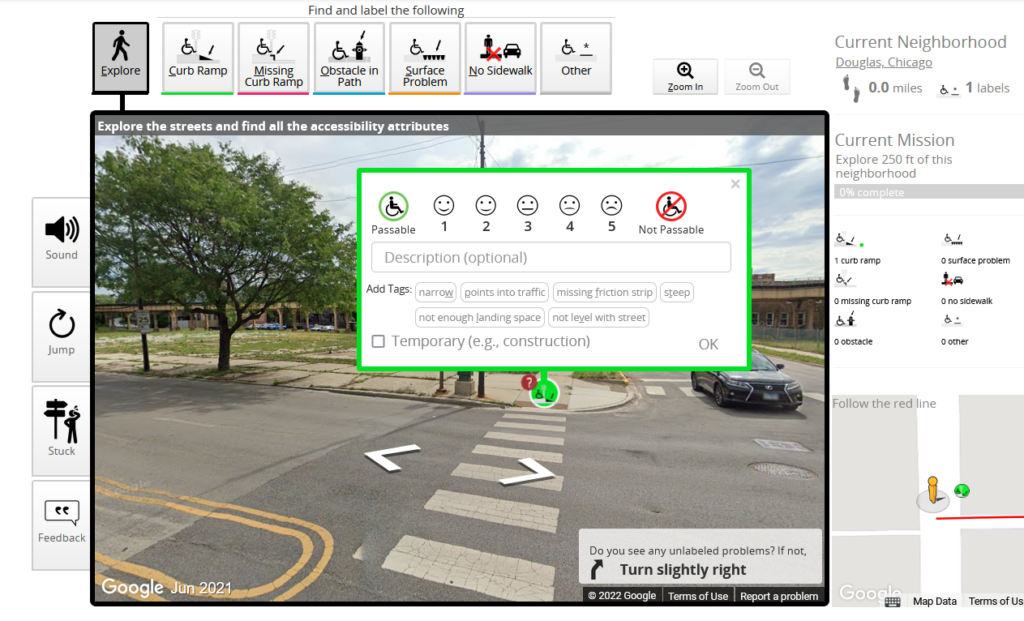Sidewalk Accessibility Tools
Crowd+AI tools to map, analyze, and visualize sidewalk accessibility for inclusive cities
Our proposal aims to (1) advance understanding of stakeholder needs and opportunities for socio-technical tools to assess and plan for accessible sidewalks; (2) develop and evaluate sidewalk data collection and assessment techniques that combine crowdsourcing and artificial intelligence (crowd+AI) methods to improve scalability, reliability, and better support diverse stakeholder needs; and (3) develop and evaluate a suite of open-source urban accessibility analysis and visualization tools.
To address these aims, we have partnered with key governmental and community organizations in the Chicago region that guide sidewalk accessibility planning and implementation—including the Regional Transportation Authority, the Chicago Metropolitan Agency for Planning, the Metropolitan Planning Council, and the Metropolitan Mayors Caucus, as well as disability organizations such as Easterseals, leading disability advocacy non-profit. Throughout our design, development, and evaluation work, we will involve these diverse stakeholders using focus groups, interviews, usability studies, and other human-centered design methods.
In this study, the activities are organized around 6 projects. The projects include:
- Workshops. We will conduct community design workshops to advance our understanding of the sidewalk data collection tools.
- Data Validation. We will collect ratings of people with mobility disabilities (PwMD) to compare with data from the crowdsourcing application developed in this project to analyze the degree to which the score correlate.
- Deployment and evaluation of the Project Sidewalk tool in communities around the Chicago area. Data on sidewalk accessibility will be collected for a set of communities and the project team will evaluate the use of that data by stakeholders.
- Workforce development. We will explore pragmatic, sustainable methods for involving people with mobility disabilities as Project Sidewalk data collectors and evaluators.
- Service-learning Curriculum. We will develop and implement a service-learning curriculum for Project Sidewalk in Chicago area schools.
- Data Analysis and Visualization tools. We will develop and evaluate the use of sidewalk data analysis and visualization tools based on feedback from urban planners, transit agencies, and disability organizations.
Content Section

Funding
IRB information
The IRB for this project is through the University of Washington
Publications and resources
Sidewalk Accessibility Crowd+AI Tool
Participate
Current activities
- Workshops with people with disabilities, caregivers, and ADA Coordinators
- Pilot deployment in selected areas
If you have any questions or would like to learn more about the study, you can contact us via email at sberqu2@uic.edu.
Team
Principal investigators
Jon Froehich, University of Washington
Yochai Eisenberg, UIC College of Applied Health Sciences
Co-investigators
Delphine Labbe, UIC College of Applied Health Sciences
Joy Hammel, UIC College of Applied Health Sciences
Judy Shanley, Easterseals